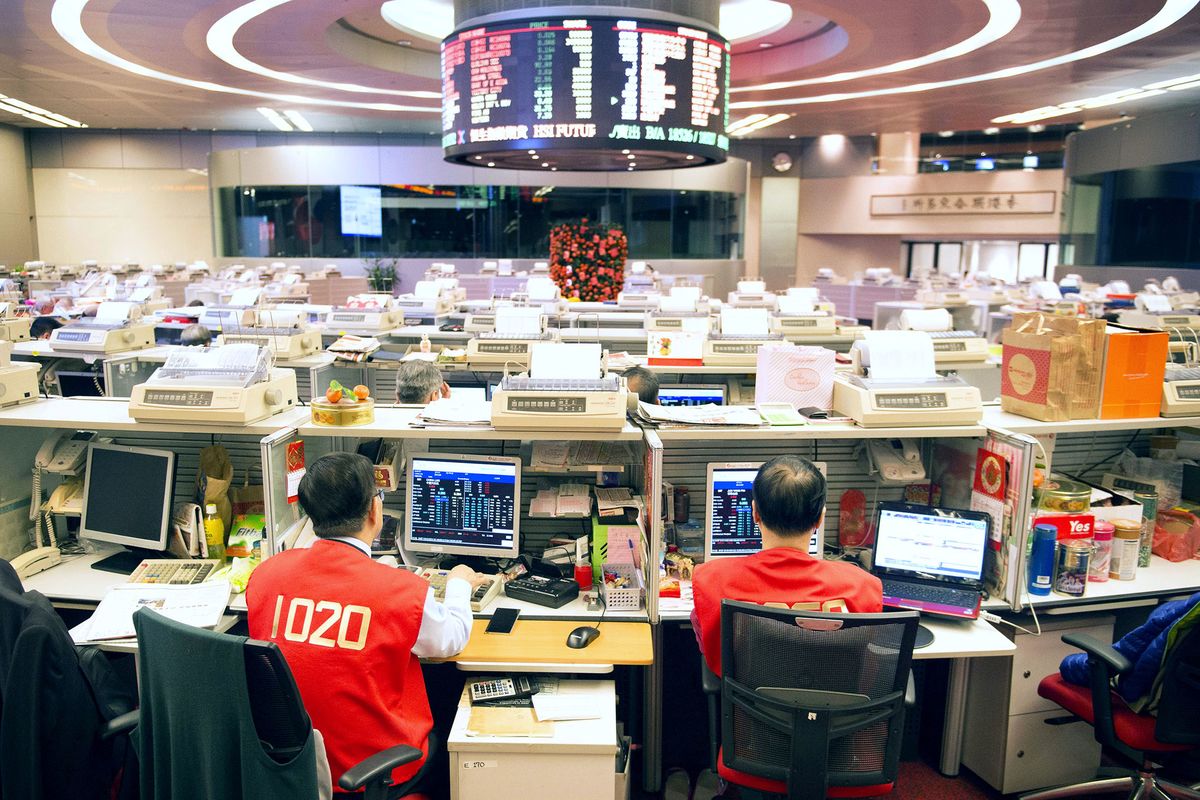Hong Kong Stock Exchange Index goes down: the reasons for the fall
The report on the dynamics of inflation growth in the U.S. last month led to a fall in the stock exchanges. Its data was worse than experts predicted, and markets immediately reacted to this state of affairs. However, not only the U.S. was under pressure – the Hong Kong Stock Exchange Index also fell. Benchmark quotations fell by 2.5% and the HSI index of technology companies lost 3%. Out of 69 stocks, which are included in the index, only one showed a price increase. And the fall affected even large technological giants, such as Alibaba, whose quotations fell by 4.4%, and Sunny Optical – by 4.6%.
The stock market is in limbo, exacerbating the situation and increasing tensions between the U.S. and China. As it became known, the White House is considering imposing sanctions against China, the reason for this was the worsening conflict between Beijing and Taiwan. If the U.S. takes such a step, most likely, the European Union will join them. However, so far there is no clear information from the White House as to what sanctions can expect from China, and when they will take effect. Experts hope that tensions can be reduced through negotiations between the countries. The fall in China’s stock exchanges indicates the instability of the economy. Such processes are especially noticeable in the provinces. The latter has always had problems, which against the backdrop of the global slowdown have become even more noticeable. Therefore, the government is developing measures that will increase investment in the economy of the regions and help stimulate domestic consumption. For example, Guangdong province plans to build 1,579 facilities by the end of this year, the total amount of investment here will be about 1.1 billion dollars. In addition, 8,500 industrial facilities were upgraded and 52,000 stations were built in the region to provide 5G communications.
The fall in China’s stock exchanges indicates the instability of the economy. Such processes are especially noticeable in the provinces. The latter has always had problems, which against the backdrop of the global slowdown have become even more noticeable. Therefore, the government is developing measures that will increase investment in the economy of the regions and help stimulate domestic consumption. For example, Guangdong province plans to build 1,579 facilities by the end of this year, the total amount of investment here will be about 1.1 billion dollars. In addition, 8,500 industrial facilities were upgraded and 52,000 stations were built in the region to provide 5G communications.
The province of Henan has developed measures to accelerate the work on the provision of infrastructure facilities. A total of 84 projects are scheduled for completion by the end of the month, with investments of more than 137 billion yuan. The Jiangsu region is implementing measures to boost domestic consumption, which will strengthen the province’s economy.
The regions are also under pressure from the national plan to increase economic growth. The government’s main focus is on the country’s six provinces, which account for 45% of GDP. In addition, they provide a share of 40 percent of all jobs in China. Despite such ambitious plans, the threat from COVID-19 is still great in the country. A number of major cities have severe restrictions, which in turn affects the growth rate of the economy.










